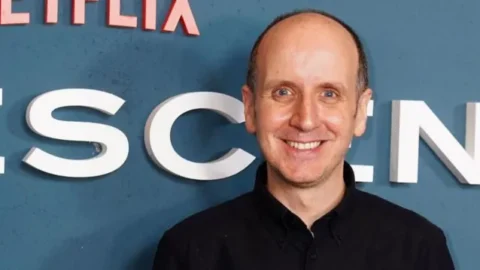Afrobeat musician and activist Seun Kuti has weighed in on the arrest of social media critic VeryDarkMan (VDM), calling it a disturbing reflection of the systemic abuse of power that plagues Nigeria.
In a passionate video posted to Instagram, Kuti expressed his deep concerns over the nature of the arrest, suggesting that it was not an isolated incident but part of a broader pattern of authoritarian practices in the country.
He spoke out against what he sees as a culture of unchecked power in both government institutions and religious organizations, where individuals in positions of influence manipulate systems for their own benefit.
Seun Kuti shared that he had been in touch with VDM’s lawyer, Deji Adeyanju, who allegedly informed him that the arrest was tied to a dispute involving a gospel singer whom VDM had previously criticized.
According to Kuti, the criticism had centered on accusations of financial misconduct, a claim that has reportedly sparked the ongoing tension.
Kuti chose not to name the gospel singer, citing the sensitivity of the matter but making it clear that the arrest appeared to be rooted in this public disagreement.
“I don’t know if anyone knows what is going on, but I’ve spoken to his lawyer, and he said it has something to do with a gospel singer whom VDM had been talking about concerning funds. I don’t even want to mention the person’s name,” Kuti said in the video.
As he reflected on the incident, Seun Kuti questioned the circumstances surrounding VDM’s arrest, highlighting the absurdity of the situation.
“How is it possible that what happened to VDM happened? How does something like this happen?” Kuti asked, rhetorically. His frustration was evident, as he expressed disbelief that such actions could take place within a system that should, in theory, serve the people.
He went on to draw a chilling parallel between the behavior of government officials and the practices he observed in Nigerian churches.
“This is why Nigeria can never better,” he continued, emphasizing the deeply entrenched nature of these systemic issues.
“Go to any government office and you’d see that they gang themselves up in the office like a cult. Churches are literally the same, so as you people want to boycott GTBank, boycott churches too.”
The arrest took place on Friday, May 2, 2025, when VDM was detained at a GTBank branch in Abuja. VDM had reportedly accompanied a friend to the bank, but his visit turned into a dramatic turn of events.
Adeyanju, VDM’s lawyer, confirmed the details of the arrest, calling it “absolutely unacceptable.” He also made it clear that demanding accountability should never be viewed as a criminal act.
“This is absolutely unacceptable. Demanding accountability is not a crime,” Adeyanju stated in response to the events.
Kuti, in his usual provocative manner, suggested that GTBank may have been complicit in the arrest, implying that the bank was used as a tool to lure VDM into custody.
“I’m sure the bank was called and told to hold VDM hostage there so they could arrest him,” Kuti speculated. His suspicion was fueled by the idea that VDM’s mother had also been facing issues with her own bank account, a situation Kuti hinted might have been orchestrated to ensure VDM’s presence at the bank, and ultimately, his arrest.
This suggestion added a layer of intrigue and suspicion to the already contentious case, further raising questions about the role of financial institutions in the abuse of power.
Seun Kuti’s statement didn’t stop at calling out the immediate injustice faced by VDM. He broadened the conversation to address the larger implications of the situation.
He emphasized that the arrest was not just an attack on VDM as an individual, but a direct challenge to the integrity of Nigerian institutions.
“Nigerians need to know that this thing is beyond just VDM,” Kuti remarked. His words were a call for a broader recognition of how individuals in power are able to manipulate institutions for personal gain, using them as instruments of oppression.
Kuti’s comments served as a stark reminder of the vulnerability of ordinary Nigerians in the face of such systemic abuse.
The arrest of a social media critic like VDM, someone who had simply demanded accountability, illustrated the extent to which the system can be weaponized to silence dissent.
“For people to be able to use institutions for personal use is crazy,” Kuti concluded, signaling his disbelief and outrage at the lengths to which some individuals are willing to go to maintain control.
His message was clear: the misuse of power in Nigeria is not just a political issue, but a deeply ingrained social problem that affects everyone.
In the wake of the arrest, Kuti’s words resonated with many Nigerians, sparking a wider conversation about the unchecked abuse of power in the country.
His bold stance against the manipulation of institutions by the powerful underscores the need for reforms and greater accountability across all sectors of Nigerian society.
While the fate of VDM remains uncertain, the case has brought to light the deep-rooted issues within Nigeria’s governance and institutions, highlighting the urgent need for systemic change.








